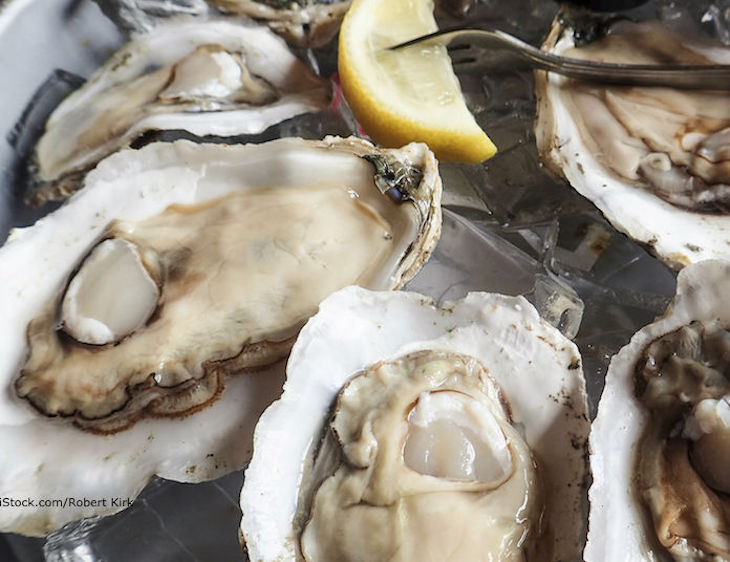A norovirus outbreak linked to raw oysters imported from Canada has sickened at least 91 people in 13 states, according to the Centers for Disease Control and Prevention (CDC). The FDA has already released a bulletin telling restaurants and retailers not to sell the oysters.

The number of illnesses is an estimate based on the information the government has at this time. The CDC is working with state and local partners to determine a more accurate number of illnesses in this outbreak. There is a norovirus outbreak in Canada linked to these oysters, with at least 279 people sick.
In the United States, there are people sick in these states: California, Colorado, Florida, Hawaii, Illinois, Massachusetts, Minnesota, New Jersey, Nevada, New York, Oregon, Texas, and Washington. Norovirus is the leading cause of foodborne illness in the U.S., but it is not a reportable condition, which is why the government is having trouble getting accurate information about outbreak numbers. No recall has been issued.
If eaten raw, oysters and other filter-feeding shellfish can contain bacteria and viruses that can cause illness. Anyone who consumes raw shellfish is at risk of contracting norovirus or other types of infections. The people who may suffer serious complications from these infections include children under the age of five, anyone with a chronic illness or weakened immune system, and the elderly. Remember that food contaminated with norovirus and other pathogens will not look, taste, or smell different.
To avoid food poisoning from oysters and other shellfish, cook them to a temperature of at least 145°F. Steaming oysters just until they open is usually not hot enough to kill pathogens. Use a food thermometer to make sure you are cooking these oysters to a safe final internal temperature.
Businesses should not serve or sell raw oysters harvested from these areas or landfiles within the south and central parts of Baynes Sound in British Columbia, Canada:
Landfiles #1407063, #1411206, #278737 in BC 14-8 and #1400036, in BC 14-15.
“Baynes Sound” will show on product tags as “14-8”and/or “DEEP BAY”, or “14-15.”
The oysters were distributed to restaurants and retailers in California, Colorado, Florida, Hawaii, Illinois, Massachusetts, Minnesota, New Jersey, Nevada, New York, Orgon, and Washington. Other states may have received the oysters. Throw the oysters away in a sealed bag in a secure trash can, or take them back to the place of purchase for a refund.
You should then clean and sanitize containers and surfaces that may have come into contact with the oysters. Norovirus is very contagious and is spread through contact with surfaces, through contaminated food, and through person-to-person contact.
Symptoms of norovirus include vomiting, nausea, stomach pain, and diarrhea. People usually start to get sick 12 to 48 hours after infection. While most people recover on their own and do not need medical care, some do become sick enough to require hospitalization. The CDC notice did not state whether anyone has been hospitalized.
If you have eaten raw oysters and have been ill with those symptoms, see your doctor. You may be part of this norovirus outbreak linked to raw oysters.




